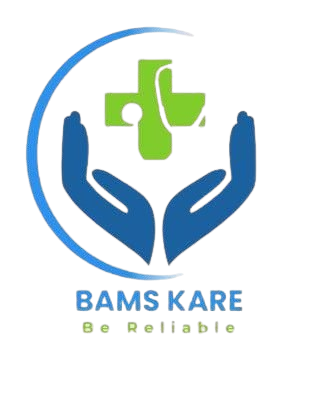STUDY MBBS IN INDIA
MBBS – Bachelor of Medicine and Bachelor of Surgery
Course Details, Eligibility, Duration & Scope

What is MBBS?
MBBS stands for Bachelor of Medicine and Bachelor of Surgery. It is an undergraduate medical degree awarded by medical schools and universities in countries that follow the UK-based educational system. It is the first step toward becoming a licensed medical doctor. The MBBS program is a combination of two degrees in one: Bachelor of Medicine (MB) and Bachelor of Surgery (BS). Despite being two degrees, they are awarded together and treated as a single qualification.
Course Duration
The typical duration of an MBBS course is 5.5 , which includes:
-
4.5 years of academic education covering pre-clinical, para-clinical, and clinical subjects.
-
1 year of compulsory rotatory internship, where students gain hands-on experience in hospitals and clinics.
Some countries may have slight variations in duration or structure based on their medical education system.
Eligibility Criteria
To apply for an MBBS program, candidates typically must meet the following requirements:
-
Educational Qualification: Completion of 10+2 or equivalent with Physics, Chemistry, and Biology as core subjects.
-
Minimum Marks: At least 50% aggregate in PCB (Physics, Chemistry, Biology); reserved categories may have relaxation.
-
Entrance Exam: Most countries require qualifying a national-level medical entrance exam (e.g., NEET in India).
-
Age Limit: Must be at least 17 years old at the time of admission.
Required Documents for MBBS
The candidates should bring the following original documents and attested certificates for further admission process.
- Class 10th mark sheet and certificate
- Class 12th mark sheet and certificate
- NEET Admit Card and Result
- Passport size photographs
- ID proof’s
- Category certificate, if applicable.
So, this is the detailed information of MBBS admission. There are numerous medical colleges and universities in India. MBBS education in India are provided by the recognized colleges of India. After finishing your degree program, you can serve as a registered medical. professional in recognized healthcare centers, hospitals, medical institutions, and pharma industry. Best of luck for you MBBS journey.
Core Subjects Covered
The MBBS curriculum includes both theoretical and practical learning across subjects like:
-
Anatomy
-
Physiology
-
Biochemistry
-
Pathology
-
Pharmacology
-
Microbiology
-
Forensic Medicine
-
Community Medicine
-
General Medicine
-
General Surgery
-
Pediatrics
-
Obstetrics & Gynecology
-
Orthopedics
-
ENT
-
Ophthalmology
Career Opportunities After MBBS
After completing MBBS, graduates can pursue various paths:
-
Postgraduate Education: MD/MS (specializations), Diplomate of National Board (DNB), or fellowships.
-
Clinical Practice: Start working as a general physician or resident doctor.
-
Government Jobs: Work in public health, rural hospitals, or defense services.
-
Research and Academics: Join medical research institutions or become lecturers in medical colleges.
-
Healthcare Management: Work in hospital administration or healthcare consultancy.
Popular Countries for MBBS
Apart from India, MBBS is also offered in countries such as:
-
Russia
-
Nepal
-
Bangladesh
-
Kazakhstan
-
UK
-
Kyrgyzstan
-
Georgia
International students should check for accreditation, recognition by the medical council, and licensing exam eligibility (e.g., FMGE, USMLE, PLAB) before enrolling abroad.
Why Choose MBBS?
-
A highly respected and noble profession
-
Strong job stability and global demand for doctors
-
Diverse career options post-graduation
-
Opportunity to serve society and save lives
MBBS Admission Process
Admission in MBBS course is purely based on the candidate’s NEET performance and result. The candidate needs to qualify the NEET test and NTA NEET Cutoff. On one hand, the candidate of general category is required to secure 50th percentile. On the other side, cutoff for reserved category candidates is 40th percentile. Only qualifying candidates are eligible to participate in NEET counselling process. All the medical colleges, AIIMS, JIPMER grants admission to MBBS course.

